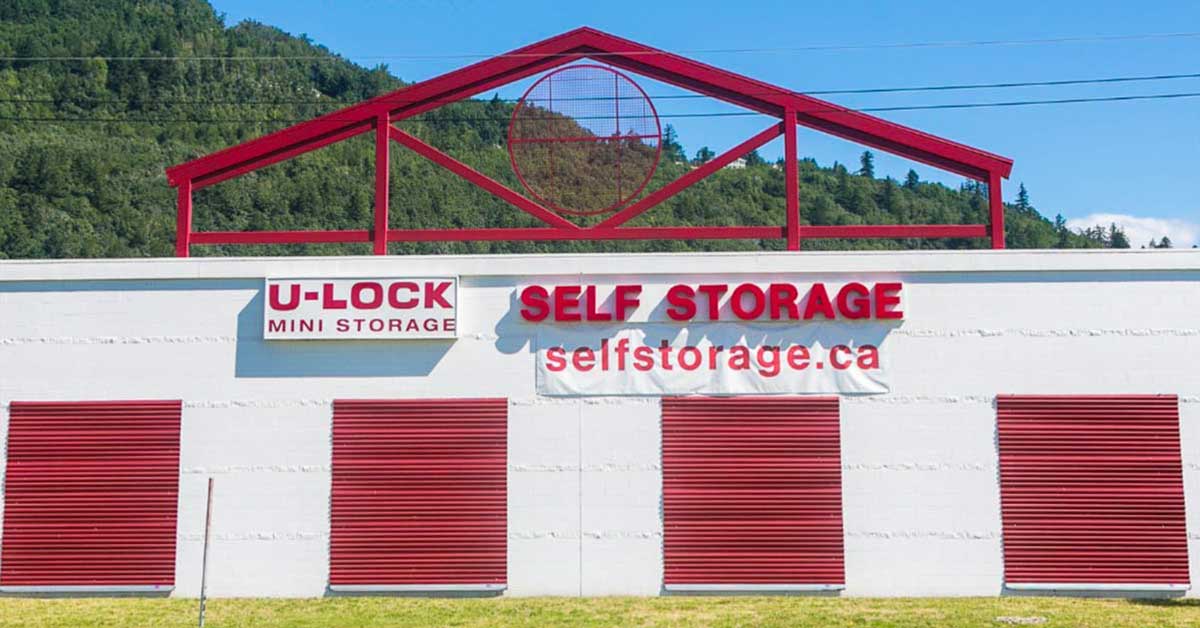What are the requirements to rent a storage unit?
You just need a valid, government-issued form of ID to rent your storage unit. Options include a driver’s license, passport, state ID or military ID. When reserving the storage unit, you’ll need to sign a binding storage unit agreement or contract. Needless to say, make sure to read it thoroughly first.
What size storage unit should I rent?
The storage unit you pick depends on the number and size of items you want to store.
Good news: at U-Lock Mini Storage, we offer a wide selection of storage unit sizes such as 5’x5’, 5’x10’, 10’x10’, 10’x15’ and 10’x20’ storage units. To see which storage unit size best serves your needs, feel free to contact us and we’ll be more than happy to help.
Our facilities include storage units Victoria, storage units Parksville, storage units Nanaimo, storage units Burnaby, storage units White Rock and Surrey and storage units Chilliwack.
For how long can I rent a storage unit?
Typically, you can rent a storage unit for as long as you like. Some people even rent storage units indefinitely as an extra space for personal or work-related items. At U-Lock Mini Storage, we offer month-to-month rental so our clients only need to rent storage units according to their needs.
How is the cost of a storage room for rent determined?
The cost of a storage unit is typically based on the size of the storage unit and the floor level on which the storage unit is. For example, a larger storage unit on the ground level, which is more easily accessed, will have a higher storage price.
How does the payment work?
You’ll be paying once a month on or before the date specified in your rental agreement.
If you default on your payment (anywhere between 5 to 30 days after the due date), the storage facility can deny you entry. The point of default should be specified in your lease. You can regain access to your unit after you pay the past-due amount. If you don’t pay your bill, per self-storage state lien laws, a storage facility has a right to hold and auction off your belongings to make up for lost rent money. This is the last resort, and you can prevent it by learning the terms of your contract, paying your monthly bill on time, and communicating with the rental facility manager as soon as possible if you’re having any issues.
How do I get my belongings to the storage unit?
A full-service storage company will take care of that for you. But if you DIY, there are several options. If you don’t have many things to store, you can pack your own car and make one or a few trips to the storage facility. To transport more items than your car will hold, consider asking for a favor from a friend or a family member with a truck. Alternatively, you have the option to rent a truck. Finally, you can take advantage of free truck rentals offered by some storage companies. Storage companies like Life Storage and CubeSmart (in partnership with Penske) offer rental trucks at select locations. At U-Haul’s participating locations, all one-way truck or trailer reservations come with one-month free storage.
What’s in a rental agreement?
Your rental agreement (also referred to as a rental contract, self-storage contract or lease agreement) will specify all the terms of your lease. It’s a binding document so you should read it carefully before you sign (online or in person) and abide by what’s in the document. Generally, your rental agreement will have:
- The description of the unit
- Length of the lease
- The amount of your rent
- Your payment due date
- The amount of your security deposit
- How payments are accepted (credit card, check, online)
- Non-payment terms (when a payment is considered late, what the late fee is and what happens if you stop paying rent)
- Any additional fees (lock-cut fee, auction fee)
- Tenant rights and responsibilities
- Landlord rights and responsibilities
- Cancellation terms
- What you can and can’t store
- The value limit, if there’s one ($5,000 is common)
- The move-out process (when to give notice, what condition to leave the unit in)

